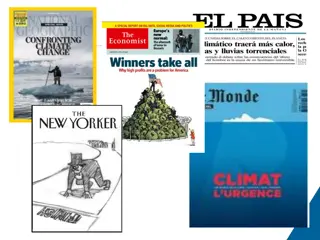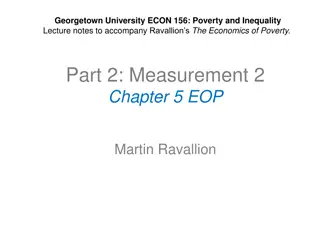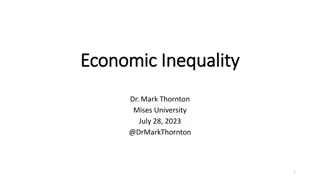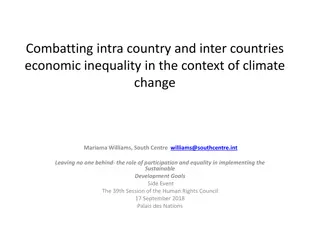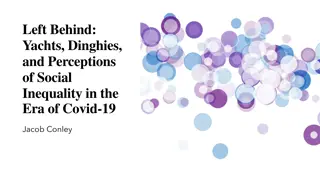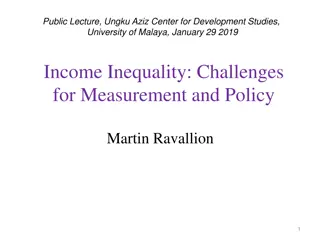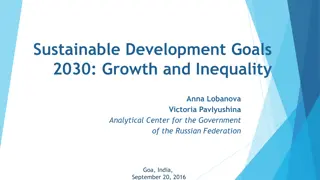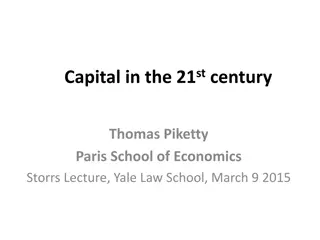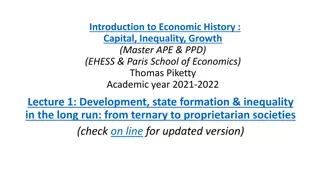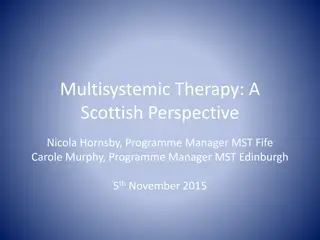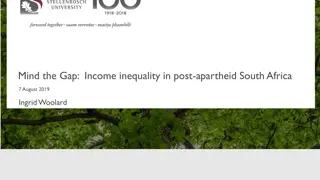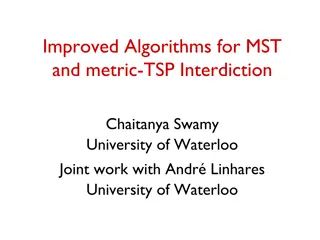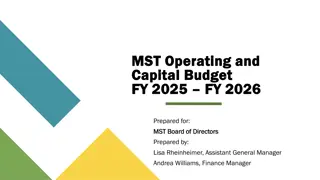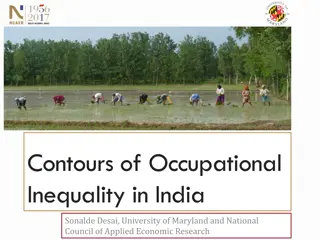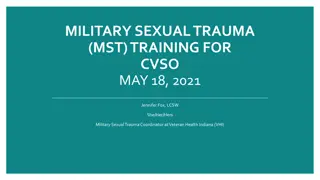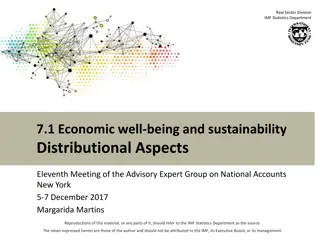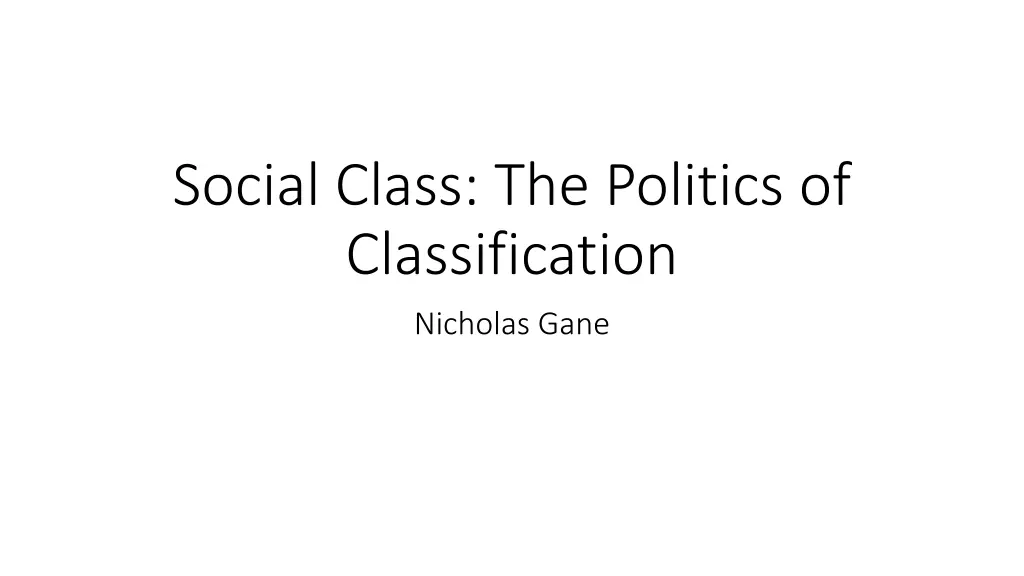
Exploring Social Class and Inequality in Sociology
Delve into the intricate dynamics of social classification, inequality, and the evolving analysis of social class in sociology. Discover the profound insights shared by prominent authors like Bev Skeggs, Satnam Virdee, and Imogen Tyler, shedding light on how classification shapes our understanding of societal structures and dynamics.
Download Presentation

Please find below an Image/Link to download the presentation.
The content on the website is provided AS IS for your information and personal use only. It may not be sold, licensed, or shared on other websites without obtaining consent from the author. If you encounter any issues during the download, it is possible that the publisher has removed the file from their server.
You are allowed to download the files provided on this website for personal or commercial use, subject to the condition that they are used lawfully. All files are the property of their respective owners.
The content on the website is provided AS IS for your information and personal use only. It may not be sold, licensed, or shared on other websites without obtaining consent from the author.
E N D
Presentation Transcript
Social Class: The Politics of Classification Nicholas Gane
Class and inequality This week we will conclude the module by returning to the question of inequality by looking more closely at the question of social class We will look at the role of classification in sociology this is something we raised when reading the work of Goffman, but requires more detailed attention Following on from our consideration of Giddens Third Way last week, we will ask what has happened to the analysis of social class in the discipline, and will ask what class does as a form of classification The main authors I will cover in this lecture are: Bev Skeggs, Satnam Virdee, and Imogen Tyler
Satnam Virdee Professor of Sociology at the University of Glasgow
Bev Skeggs Professor of Sociology at Lancaster University
Reading Between Virdee and Skeggs In 2018 Satnam Virdee gave the Sociological Review Annual Lecture It was entitled Racialized Capitalism: An Account of Its Contested Origins and Consolidation Bev Skeggs was a respondent to this lecture, and her reply was published as The Forces that Shape Us: The Entangled Vine of Gender, Race and Class Both pieces have been published in the Sociological Review and can be found on the reading list for the module Another respondent to this lecture was Sivamohan Valluvan. His reply Uses and Abuses of Class: Left Nationalism and the Denial of Working Class Multiculture is a further reading for this week
Virdee Satnam Virdee s lecture is hugely detailed and impressive and I can only summarise its main points here please do read it yourselves Virdee opens by observing that There is a powerful origin myth produced by, and on behalf of, sociologists which tells a rather comforting story about the discipline s inherent radicalism and critical outlook , p.3 However, When viewed from the margins of the discipline, in this instance, the hinterland of racism studies, such a narrative appears complacent, arguably disingenuous , p.4 He argues that things are changing but
Class and race the ongoing production of critical scholarship on racism with its innovative analytic efforts to think racism in articulation to class, gender, nation and the state has remained firmly contained within the sociological box marked race . As a result, its relative influence in informing and shaping conceptual and empirical research agendas in other core areas of sociology has remained minimal. Take for example what is widely regarded as British sociology s definitive contribution to the discipline, the study of social class, where at least two generations of sociologists seem to have demonstrated a wilful indifference towards coming to terms with the theoretical and conceptual implications of thinking race and class together generated by four decades of scholarship and debate within racism studies , p.4
Ways forward 1). Virdee argues that we can denaturalise capitalism to bring into sharper focus the part it played in racism s genesis and reproduction 2). And to fully grasp the significance of racism to the formation and reproduction of the modern world requires that we deepen further postcolonial sociology s efforts to move beyond the discipline s commonly understood boundaries . Virdee emphasises, in particular, the importance of history: Periodization and attentiveness to the complexity of the historical archive is essential because racism s rise was incremental yet relentless over the course of modernity s unfolding. Such a historical turn requires removing our collective blinkers , particularly in British sociology, to unthink the usual ways of doing sociology and roam more freely across so-called disciplinary divides in search of answers to fundamental questions , p.7.
Virdees account Virdee s analysis moves from what he calls the theoretical abstract to the historically concrete in order to question the key moments in racism s incremental but relentless rise , p.11. He provides an account of the emergence of racialised capitalism from the 14thCentury onwards (see pp.11-19) Importantly, he observes that socialist movements that emerged in opposition to free market capitalism from the 19thCentury onwards did not engage fully with the racialised basis of capitalism, and in fact new socialist forms of nationalism incorporated some of the racist views of previous forms of imperialist nationalism
Exclusions Virdee explains: In particular, socialist institutions established to advance the cause of social justice for the working class simultaneously became self-actualizing agents in the production of racialized difference, helping to reinforce the bifurcation of the working class of each Western European state through the consolidation of new hierarchies of labour p.19. This meant that their demands for social justice still excluded parts of the working class on grounds of race and ethnicity, p.19 For example: , Jewish workers were understood not as a super-exploited fraction of the working class, but an alien body, antithetical to British working class interests and responsible for undermining its conditions of living , p.20.
New racisms? Virdee writes: The instigators of racism within imperial Britain became no longer just the state, the capitalist elite and the middle classes but also socialist institutions who solidified racialized and hierarchical conceptions of difference within the working class such that racism became one of the principal means through which parts of that class came to live in an imaginary way, their relations to the real, material conditions of their existence (Hall, 1980, p. 334) . He argues that this became increasingly apparent between when more than 400,000 individuals from the Indian sub-continent and the Caribbean arrived between 1948 and 1962 , p.21.
The post-WW2 period Virdee explains: Attachment to the twin racializing projects of imperial and socialist nationalism was so comprehensive in this moment that there was simply no institutional space in British political culture to make sense of the migrant presence from a progressive standpoint. Consequently, what these social groups faced was an unrelenting and sometimes violent racism from all social classes. Alongside party political and state racism, Caribbean and Asian workers were confronted with practices of social closure from parts of the organized working class, who in opposition to their presence had come to re-imagine themselves as white. While racism was not new in Britain as we have already seen, what distinguished this period was the extent to which the British state, employers and workers had come to internalize a common British nationalism underpinned by a shared allegiance to whiteness , p.21.
Progressive politics? Virdee: what should we learn from this? He says: A race-blind counter-hegemonic politics risks leaving untouched the deeply embedded injustices of historic and contemporaneous racisms. To fundamentally challenge the ways in which the global proletariat has been differentiated and incorporated into capitalist relations of domination over more than four centuries requires a different approach, one which invites the social movements to wilfully entangle demands for economic justice with explicit anti-racist demands , p.23.
Sivamohan Valluvan He responds: The organized left is certainly newly emboldened in the United Kingdom. A renewal that has been so exhilarating for so many of us; and, indeed, there are many from within British sociology who have been commendably involved in that revival. This is, however, a left that does continue to frustrate when faced with the question of nation and race. It is a left that does, at best, tend towards a certain quietism, and, at worst, to wilfully partake in the demonization of the migrant a wider left reflex that seems reluctant to intuitively recognize certain minorities and other outsider migrant figures as part of the working class, and worse yet, wishes to characterize them as active threats to the native working class . p.43.
Skeggs Bev Skeggs argues that on the connections raised by Virdee between racism and class the discipline has been wilfully ignorant. Her main target is someone we looked at last week: Anthony Giddens Her view is that sociology lost its critical edge when a nationalist, individualist, presentist analysis was offered by the likes of Giddens and Beck. Sociology became a source of legitimation, not a force of critique. We should never forget that Giddens was an architect of New Labour s third way , an apologist for the institutional structures that enabled neoliberal policies to be implemented . And adds: The occlusion of attention to the processes, structures and forces that produce class (and gender, race, sexuality), i.e. those of capital, capitalism and colonialism, I would argue, was not a conspiracy but a complacency of the comfortable, a perspective of privilege , p.28.
Skeggs response One of the key question raised by Virdee, for Skeggs, is in whose interests? does the discipline work a question we raised in our earlier consideration of Goffman s work and also through the lecture I gave on racial capitalism Beyond this, Skeggs raises the question of intersectionality: It is the contradictions between race, class and gender that are so beautifully examined by Satnam as entangled like a snarling vine . There is no empty performative of intersectionality at play here, where intersectionality exists as a gesture that produces nothing other than a statement of no-intent; rather, we have a story of force, logics and entanglement, including the violence performed by categorization , p.29 Question: what do you make of this statement?
Intersections of inequality? Skeggs expands on the question of gender inequality, which is raised by Virdee but not in close detail She writes: Capitalism was not just a colonial raced project but was also performed through the bodies of women. They were absolutely central, whether for the biological production of labour, for the social reproduction of the labour, or for labour , p.32. And observes that The processes by which capitalists divided labour through difference and work is a complex race, gender and class issue. It is not a straightforward analysis of difference. It is a complex intersection of different forces that make and unmake value as they materialize on bodies in different spaces and time , p.32.
History In conclusion to her response, Skeggs, like Virdee reasserts the importance of history as a resource for understanding the present She writes: If we do not understand the historical conditions that enabled our existence as particular types of potential value, as property, as rent, as the lubricant of social reproduction that enables capital to continue its travels, we remain entrenched in privileged provincial perspectives. Satnam calls us to account for our conceptual complacency. How did we get so distracted?...Satnam s essay made me pause and ponder: how did we get so side-tracked? What is the point of sociology? , p.34 This is the question with which we began the module through the work of C. Wright Mills
Imogen Tyler Someone we have read previously on this module She is interested in the way that classification (and class as a form of classification) works, and the powers it exerts over those populations that are classified In the article I set as a key reading this week, she opens with the following declaration: Sociological writing about social class invariably returns to the question, What is class? , but this is the wrong question. Instead, I want to begin by asking what is the problem that class describes? The answer is a surprisingly simple one, the problem that class describes is inequality , p.496.
Class analysis Following on from this statement, Tyler argues that class analysis is properly concerned with developing approaches and methods which might allow us to better understand and address the effects of class- based inequalities and the forms of exploitation which accompany and enable inequalities to be sustained and reproduced , p.496. Class refers to what Tyler calls structural conditions of inequality conditions that are barely mentioned in texts such as Giddens Third Way This point, for her is significant as it is an example not just of wilful ignorance but of a political strategy that seeks to write class out of politics and potentially also out of the discipline
What happened to class? She writes: Understanding contemporary transformations in class- relations, through a class-based sociological lens, has been made more difficult by the three-decade long struggle on the part of the elites to jettison class as the lens through which to perceive and contest social and economic inequalities (see Tyler, 2013). This attempt to decouple inequality from class was vividly illustrated in Britain by the transformation of the Labour Party in the 1990s, from the parliamentary party of the working class, to New Labour (that is, Neoliberal Labour ), a party that embraced financial capitalism and focused its policy efforts on privatization of welfare and the deregulation of financial markets , p.497.
Sociology Tyler argues that this move away from the politics of class was mirrored by the discipline of sociology through this period, especially through the work of Giddens and colleagues such as Ulrich Beck She says: The well-documented retreat from class within sociology in the 1990s formed part of this movement to decouple class from the inequalities effected by neoliberal reforms For example, Ulrich Beck famously stated that class had become a zombie category . In an argument that was first finessed by Margaret Thatcher (1987), he argued: Society can no longer look in the mirror and see social classes. The mirror has been smashed and all we have left are the individualized fragments , pp.497-8.
The politics of class Against this view, Tyler advances a different position that sees class and class inequality as becoming more rather than less important under conditions of neoliberalism She declares: social class hasn t dissipated or dissolved under neoliberal conditions. On the contrary, classificatory struggles have intensified. Inequality remains a matter of class, even when it is not explicitly understood as such by those who perceive or indeed experience inequality in the same movement through which neoliberalism decomposes class relations, new class relations are composed, not least in struggles against the inequalities that neoliberalism effects. This is why class struggle remains an essential point of orientation for sociology, if it is to grasp the problems of inequality today. , p.498.
Classification and struggle Tyler draws on the work of Skeggs to argue that class is not just about classification but about struggle (including struggle against being classified in ways through the use of particular words or signifiers) Tyler argues: classifications are not only descriptive of the world, they have consequences in the world and are operative defining the possibilities for action and bounding one s sense of agency , p.502 She addresses the televisual classification of the most disenfranchised populations within contemporary societies : What distinguishes neoliberal media culture is that class inequalities are rescripted to appear a consequence of individual choices, wealth is earned and poverty deserved , pp.505-6.
Tylers response Tyler responds to the neoliberal individualisation of inequality by arguing that the discipline must be concerned with the analysis of structural forms of power and inequality and therefore with questions of class However, in saying this, she argues that we as sociologists should be aware of the classifications that we use to label and group together populations, as this itself is an exercise of power (that can produce stigma) For this reason, Tyler states that The most effective forms of class analysis are concerned not with undertaking classification per se, but rather with exposing and critiquing the consequences of classificatory systems and the forms of value, judgements and norms they establish in human societies , p.507.
Sociology of class This is a shift from forms of class analysis that have dominated British sociology from the mid-20thCentury onwards On one hand, these were concerned with the measurement of class and the description of class as a form of stratification On the other hand, class (in more Marxist term) was seen as a political struggle between groups a relation rather than measurement Tyler: class and classification is relational but is also political as it involves acts of power in placing and labelling groups in different ways, and also acts of resistance and struggle against the values that underpin classification of different types (including racial and gendered forms of classification)
Questions 1). Virdee argues that it is important to think race and class together . How should we do this? 2). How do inequalities of different types intersect with each other? 3). Do you agree with Skeggs argument that in not dealing with structures and forces that produce class, gender, race, sexuality, sociology has been wilfully ignorant and/or complacent ? 4). Should sociology be attentive to the politics of the classifications and labels it uses to study of social groups? 5). Do you agree with Tyler that The most effective forms of class analysis are concerned not with undertaking classification per se, but rather with exposing and critiquing the consequences of classificatory systems ?

